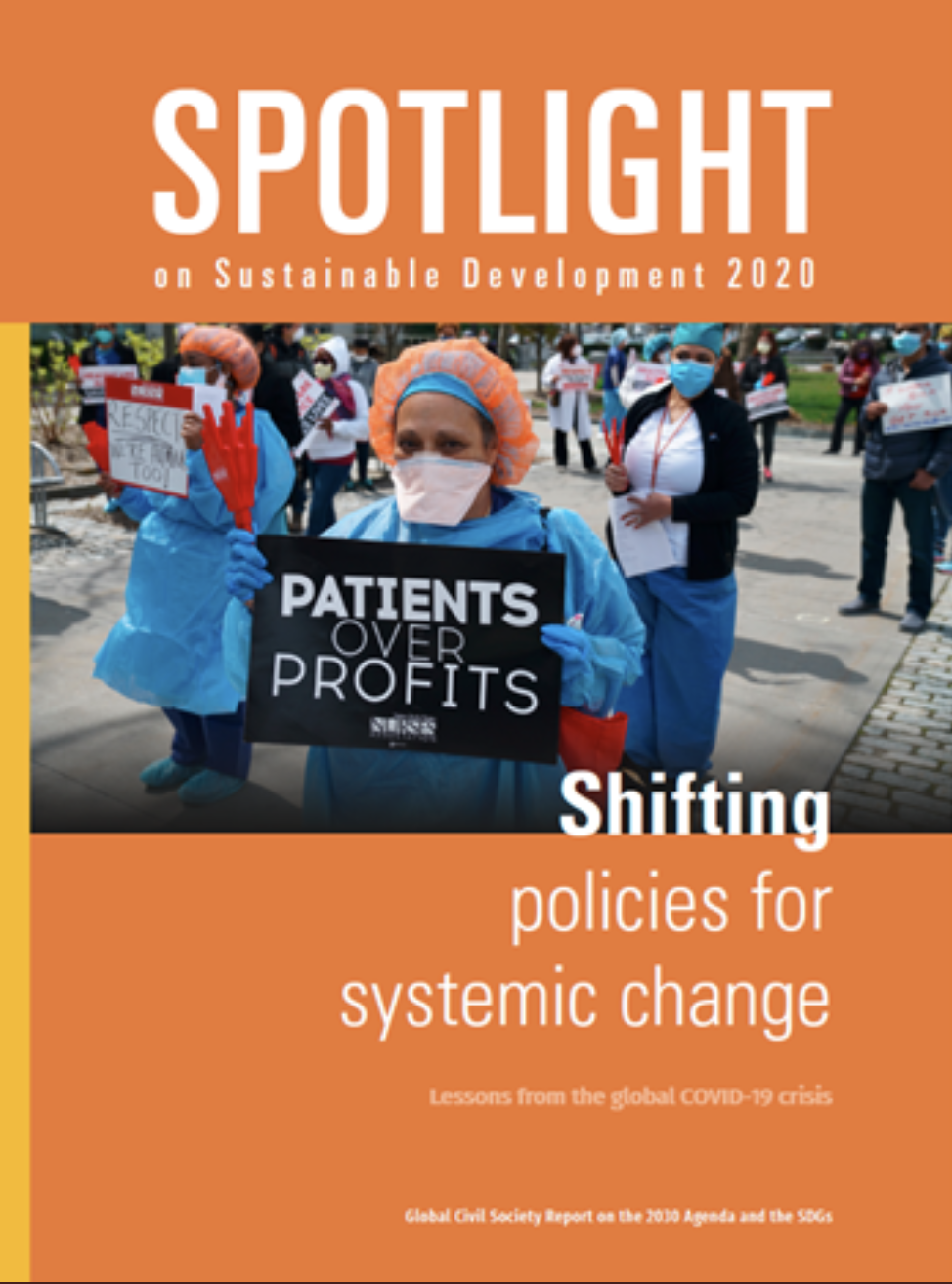"The pandemic is galvanizing an ever-increasing array of actors to imagine how our economies could be reshaped if human rights and human dignity were put at their center, and to work together to make that vision a reality." – CESR’s Kate Donald and Ignacio Saiz in the Spotlight Report 2020

The COVID-19 pandemic is having a massive impact on the fulfilment of human rights and the implementation of the Sustainable Development Goals. The looming global recession will dramatically increase unemployment, poverty and hunger worldwide. Moreover, the crisis threatens to further deepen discrimination and inequalities.
In this context, CESR and publication partners are launching the 2020 edition of the annual Spotlight Report on Sustainable Development, “Shifting Policies for Systemic Change.” The Spotlight Report is widely acknowledged as the most comprehensive civil society assessment of the implementation of the 2030 Agenda and SDGs, co-published by eight international NGOs, networks and trade unions, including the Center for Economic and Social Rights (CESR).
The 2020 edition builds on the previous years’ analysis of the obstacles to sustainable development and proposals for transformative change, but unpacks them with relation to the COVID-19 pandemic. The call to “build back better” has become a leitmotif of intergovernmental responses to the crisis. But does “building back” really lead to the urgently needed systemic change? What kind of policies, strategies and structural changes are necessary to ensure the primacy of human rights, gender justice and environmental sustainability?
The report argues policy responses to COVID-19 must not repeat the mistakes of the past or return us to the deeply dysfunctional, structurally unequal status quo. Responding to the so-called "Great Reset" launched by the World Economic Forum to “rescue capitalism”, the Spotlight Report offers as an alternative the “8 R” agenda for transformational recovery.
1. Re-value the importance of care in societies
2. Re-empower public services
3. Re-balance global and local value chains
4. Reinforce the shift towards climate justice
5. Redistribute economic power and resources
6. Re-regulate global finance
7. Reinvent multilateral solidarity
8. Redefine measures of development and progress
CESR’s Kate Donald and Ignacio Saiz author the section on redistributing economic power and resources, arguing that in designing and implementing relief and recovery packages, governments have the chance to start breaking up the concentration of corporate and elite power at the root of the inequalities starkly exposed by COVID-19. They argue for the vital importance of drawing on human rights principles as we navigate our way through this crisis. "Socioeconomic rights standards give us a roadmap for a just recovery: away from an exploitative economic model based on unsustainable growth, towards a resilient one based on caring for people and the planet."
The report also includes critical analysis of the actions, inactions and policy responses of governments and international organizations in response to the health and economic crisis. Based on national civil society reports, it describes how COVID-19 and resulting lockdown has affected countries in different ways, depending on their social and economic circumstances. It also highlights examples of civil society responses to these crises and the various forms of social mobilization for transformational change taking place worldwide.
The report also features contributions from CESR allies and partners beyond the core editorial group, including the Institute for Economic Justice in South Africa and Centro de Derechos Económicos y Sociales (CDES) in Ecuador.
The Spotlight Report is published by the Arab NGO Network for Development (ANND), the Center for Economic and Social Rights (CESR), Development Alternatives with Women for a New Era (DAWN), Global Policy Forum (GPF), Public Services International (PSI), Social Watch, Society for International Development (SID), and Third World Network (TWN), supported by the Friedrich Ebert Foundation.